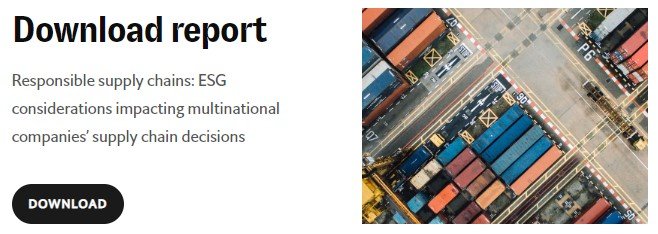What would it take for corporations to implement truly sustainable business practices? A new report considers how it could happen, comparing two sectors with especially complex supply chains. The authors of the report consulted two experts from Oxfam: Suzanne Zweben and Emma Fawcett. Suzanne weighs in here with her take.
In late May, my Oxfam colleagues and I welcomed a new report from Economist Impact (commissioned by USAID), which considers how to compel multinational corporations to include environmental, social and governance (ESG) factors in making crucial business decisions. The analysis covers issues that I’ve been working on for a long time, backed by an organization with 75 years of evidence-based policy research across 205 countries.
The report considers two complex sectors–food and beverage, and textile and apparel—and puts them side by side, noting that both are particularly exposed to ESG risks “because they have some of the most complex, multi-tiered supply chains of any global industry.” Further, both sectors “depend on labour-intensive, emissions-intensive and environmentally demanding production, frequently in countries with poor human rights records that provide crucial inputs for fully globalised supply chains.”
In so doing, Economist Impact has substantiated trends many of us working on responsible supply chains have seen emerge over the last few years: “The use of ESG metrics as a serious evaluation of how multinational companies are integrating environmental and social factors in their business operations and supply chains is accelerating."
Challenges in the tiers of the supply chain
The report provides sharp analysis on how ESG targets become a reality and move to scale across different tiers of the supply chain. ESG integration goes beyond where multinational companies have contractual relationships (Tier 1), and importantly still carry the reputational and regulatory risk of those business relationships (Tier 2 suppliers and beyond). (Supply chain tiers are based on the proximity to the final product.)
Three fundamental challenges facing suppliers are:
- financial resources for ESG integration,
- training and capacity building for suppliers to strengthen in-house ESG knowledge and expertise, and
- weak or uncertain legal requirements and industry standards.
For years, Oxfam has encouraged multinational companies to strengthen the capacity of suppliers and invest in the integration of ESG across their supply chains. We are pleased to see Economist Impact do the same.
Furthermore, Oxfam’s work on food retailers has shown how pushing costs to suppliers, and paying less than a living wage or income (and in the most egregious cases less than the cost of production) can drive human rights violations.
Both Economist Impact and Oxfam have identified companies successfully engaging suppliers to strengthen their capacity, provide resources for the work, and improve data collection—all of which shows that it’s possible. Front-running companies have long led the way on innovative models and putting responsible sourcing into practice–initially through these voluntary approaches.
One example often cited is around chemicals management for consumer products, where voluntary best practices paved the way for mandated product legislation in Europe and state governments in the US (as a start). We are seeing the same trends today; for example, the SEC is beginning to grapple with Scope 3 emissions. For the food and beverage sector, Scope 3 emissions comprise the bulk and come largely from agriculture and land use change.
In addition, companies conducting strong human rights due diligence (HRDD) will also be well placed once legislation on HRDD beginning in the EU takes shape.
From market failure to level playing field
Leading companies willing to test, innovate and incentivize their suppliers to join them in reaching ESG targets will be well positioned once governments step in to regulate; Economist Impact has pointed out that there is a market failure around adequate resources to encourage more sustainable business practices.
Investors integrating ESG can also play an essential role in driving more sustainable business practices–and, like front running companies, will be better positioned once regulation is put into place.
Two next steps identified by the report–government intervention and "cross-sector cooperation to achieve the levels of compliance necessary to meet the intended goals"–will certainly sound familiar to readers of Oxfam publications.
We hope this report sparks greater action in these essential areas moving forward, in what I hope has rightly been dubbed the "decade of delivery" by the United Nations.
_____________________________________________________
Visit the Economist Impact site to download the report.




